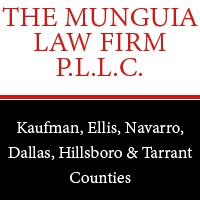Ennis Criminal Lawyer, Texas
Sponsored Law Firm
-
 x
x

Click For More Info:
-
Stephanie Alvarado Attorney at Law
100 N Central Expy Suite 805 Richardson, TX 75080» view mapCriminal Defense Law Fighting Against Unjust Prosecution
Attorney Stephanie Alvarado is there for her clients when help is needed right away. Helping people charged with crimes in Texas for over 20 years.
800-988-5471
Jesse Munguia
✓ VERIFIEDCivil Rights, Juvenile Law, Estate Planning, Family Law, Employment
The Managing Attorney is Jesse Munguia. We are a full service law firm. We primarily service clients in Divorce, Child Custody, Child Support Modifica... (more)
Natalie Plummer
✓ VERIFIEDCriminal, Accident & Injury, Divorce & Family Law, Business, Estate
Attorney Natalie Plummer - formerly Attorney Natalie Reed My goal is simple. I will do my best and fight my hardest to meet your needs. Whether y... (more)
Ronald Edwin Bunch
DUI-DWI, Estate Planning, Personal Injury, Administrative Law, Federal Appellate Practice
Status: In Good Standing Licensed: 41 Years
Cynthia Watson Hellstern
Other, State Appellate Practice, Criminal
Status: In Good Standing Licensed: 32 Years
Patrick M. Wilson
Government, Criminal, Administrative Law
Status: In Good Standing Licensed: 27 Years
James R. Jenkins
Wills, Clean Air Practice, Collaborative Law, Criminal
Status: In Good Standing Licensed: 52 Years
John C Mallios
Estate Planning, Personal Injury, Family Law, Criminal, Business
Status: In Good Standing
FREE CONSULTATION
CONTACTDan Douglas Cox
Family Law, Divorce & Family Law, Criminal, Wills
Status: In Good Standing Licensed: 37 Years
 Stephanie Alvarado Richardson, TX
Stephanie Alvarado Richardson, TX Practice AreasExpertise
Practice AreasExpertise


